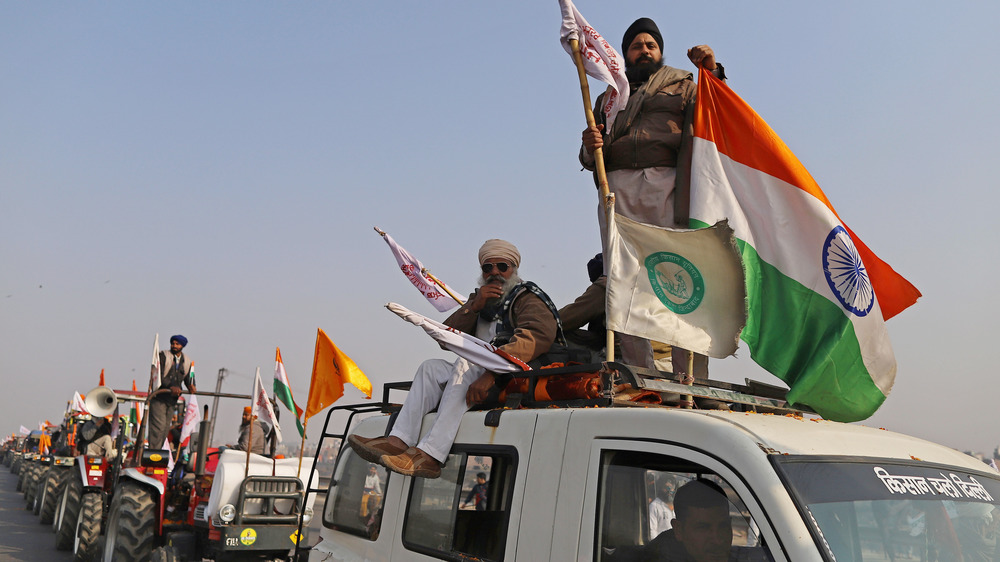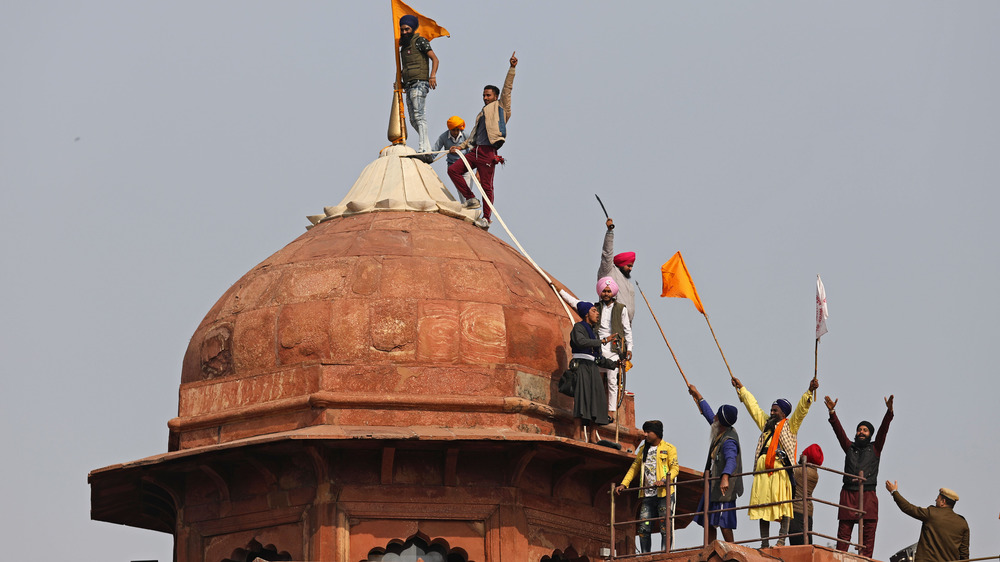There's A Massive Farmer Protest Happening In India. Here's Why
The images have been appearing on news reports around the world for months now. Hundreds of thousands of farmers in India are camping outside the capital city of New Delhi, sometimes marching or riding in long lines of tractors, sometimes clashing with police (via The New York Times). Hundreds of police and farmers were injured, and one protester died, when the rally turned violent on Republic Day, a major holiday celebrating India's constitution.
After the violence, the government shut down internet service in regions around the capital, restricting communication among protesting farmers and making it difficult for them to tell their story. "The government does not want the real facts to reach protesting farmers, nor their peaceful conduct to reach the world," said Darshan Pal, a leader of the group representing the farmers (via CNN).
Farmers started protesting in November, shortly after India's central government passed new laws the farmers say will endanger their livelihoods. Nearly 60 percent of India's 1.3 billion people make a living in agriculture, according to CNN.
India's government and farmers are trying to negotiate a solution
As outlined by CNN and The New York Times, Indian farmers since the 1960s have relied on government support, especially guaranteed prices for their crops, which provide farmers stability. They know how much money they can make each season. Under Prime Minister Narendra Modi, the government wants to get out of the farming business and let the free market decide who is going to buy what crop at what price. Farmers worry this will open the door to big business, which could take over agriculture, cut prices, and squeeze out the little farmer. Not only their way of life but their way of making a living is at stake. As the Times pointed out, India's weak economy wouldn't give these farmers many other opportunities to earn an income.
India is a democracy – the world's largest, in fact – and as a majority, farmers are an important voting base. That probably explains why Modi's people have sat down with the farmers to negotiate. On top of that, India's Supreme Court called for a mediation committee to get the two sides talking. The court has put the new agriculture laws on hold for now.
The negotiations are a good sign, considering that India's leadership usually tries to silence or jail any opposition (via The Washington Post). So far, however, the talks haven't gone anywhere. There's no indication the farmers camped outside New Delhi are going anywhere either, until this is resolved.

